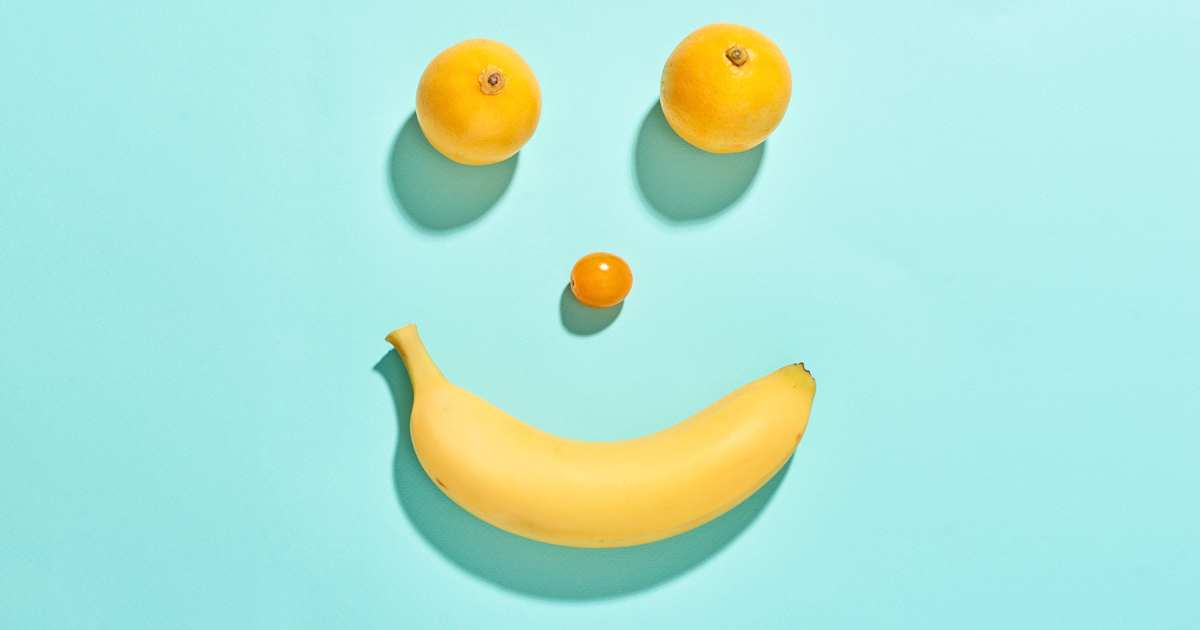Brain food: What foods help with mood?

When you eat your fill, you're feeding trillions of tiny bacteria, too.
"Nutrients in our diet work together to produce different hormones," says nutrition therapist Jenna Wuebker, MS, RD, LMNT. "The foods you eat can help regulate your mood and emotions."
Nutrients are the building blocks of happy hormones, which are created in your gut.
"For instance, serotonin is one of our happy hormones," explains Wuebker. "The majority of serotonin is produced in our gut, meaning intestines. The healthier you're eating, the more serotonin your body makes, which may improve your mood."
How your microbiome affects your mood
Your gut is where digestion happens. Some digestive work is undertaken by your own body. But a lot of credit goes to something called your gut microbiome.
Your gut microbiome is a mysterious community living inside you, at this very moment. It's made up of trillions of microbes, which are tiny organisms that break down food products.
During digestion, these microbes send signals to the immune system and your brain. If your microbes are not functioning properly, they complain, which then affects how you feel.
"Whole foods, especially fiber-rich foods and probiotics, can promote healthy bacteria," says Wuebker.

What foods improve mood
Vitamins and minerals (from the foods you eat) are needed to create certain hormones. Stock up on these foods to boost your mood:
• Fiber-rich foods
• Protein
• Antioxidant-rich foods
• Omega-3 fatty acids
Fiber-rich foods (fruits, veggies, whole grains, beans)
Fiber-rich foods keep you feeling full (so you don't reach for an unhealthy snack) as well as energized. "The fiber in fruits, vegetables and whole grains slows down digestion and gives us a longer-lasting energy source," says Wuebker. "Fiber feeds our healthy bacteria, which can be linked to improving our mood."
Protein (chicken, fish, tofu, eggs)
"Protein is also digested more slowly, giving you more consistent energy that sticks with you longer," explains Wuebker. Focus on choosing lean meats like chicken, turkey and fish while limiting your intake of red meat like beef and pork. Protein is also found in plant-based foods such as beans, nuts, seeds, tofu, soy milk and quinoa.
Antioxidant-rich foods (berries, leafy greens, turmeric, salmon, black chia seeds)
"Antioxidant-rich foods may positively impact your energy levels and mood," says Wuebker. "Research suggests that antioxidants have an anti-inflammatory effect, helping your body remove free radicals which can be harmful to your cells."
Omega-3 fatty acids (salmon, tuna, walnuts, plant oils, flax seeds, chia seeds)
"Fish and seafood are a group of foods with lots of omega-3 fatty acids. Research suggests omega-3s are helpful for better moods and work against depression and anxiety," notes Wuebker.
What foods cause mood swings
Some additives and preservatives can negatively impact your gut microbiome.
- Sugar-sweetened foods
- Flour-based foods or processed carbohydrates
- Processed meats like bacon, sausage, salami and pepperoni
Sugar-sweetened foods (candy, cakes, pies, soft drinks, chocolate)
If you've ever seen a kid eat way too much candy, you've seen a sugar spike in action. After a burst of excitement comes a really bad mood. Wuebker says adults will react similarly to sugar-sweetened foods. "You'll get a spike in blood sugar levels at first, but then a steep fall later. So you'll have ups and downs throughout the day in how you feel."
Some studies have linked an increased risk of depression with sugar-sweetened soft drinks (i.e. soda or pop).
Flour-based foods (white breads, crackers, white pasta, baked goods)
You'll get a quick burst of energy right after your gut digests flour-based foods, but it'll be quickly followed by a fall in energy.
"White flours are easy to digest quickly, which can cause an energy spike – and then a crash," says Wuebker. "I'd try to reduce or avoid these types of food for more sustainable energy."
That's why more complex carbohydrates, like whole grain foods, are generally better for you. "Whole grains are digested slower, so you have a gradual, constant source of energy," adds Wuebker. "Look for steel-cut oats, whole grain breads and brown rice."
Where to start
When it comes to making long-lasting change, Wuebker says to start small. "If you look at different food groups, pick one thing to start with. Maybe one week you choose to increase the number of fruits you eat. And that's all you work on. And then once you have that habit established, you work on adding more vegetables."
And remember that small changes can have a huge impact. "For the most part, our food choices are something we can control," says Wuebker. Now that's a happy, mood-boosting thought.




